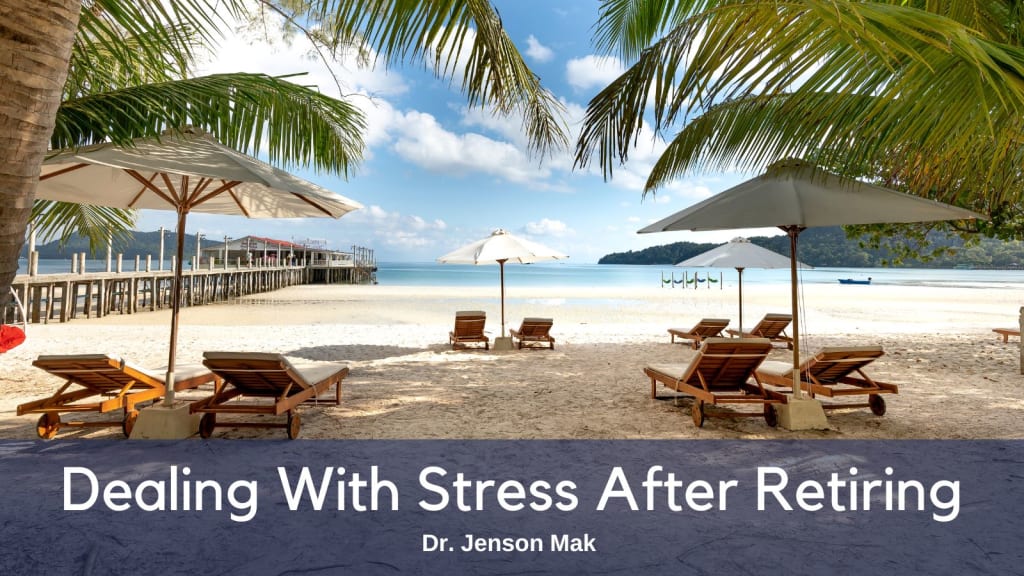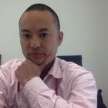Dr. Jenson Mak on Dealing With Stress After Retiring
Dr. Jenson Mak discusses techniques on handling stress after retiring

Retirement is often seen as a well-deserved break from work demands and a chance to enjoy the fruits of one’s labor. However, retirement can also bring unexpected challenges for many individuals, including increased stress levels. Transitioning from a structured work environment to a more relaxed lifestyle can be a significant adjustment, and developing effective strategies for managing stress during this period is essential.
Embrace a New Routine One of the key factors contributing to stress after retirement is the loss of a structured daily routine. Establish a new habit that provides a sense of purpose and direction. Consider setting regular waking and sleeping times and allocating specific hours for exercise, hobbies, and socializing. Having a structured routine helps create a sense of stability and control, reducing stress levels.
Retirement opens up possibilities for pursuing activities and interests that may have been put on hold during one’s working years. Engaging in activities that bring joy, fulfillment, and a sense of accomplishment can significantly reduce stress. Whether volunteering, learning a new skill, joining a club or organization, or even starting a small business, finding meaningful activities can give retirees a renewed sense of purpose and keep stress at bay.
Retirement can sometimes lead to decreased social interactions, mainly if one’s former colleagues are still working. Maintaining and building social connections is crucial for emotional well-being and stress reduction. Seek opportunities to meet new people, join community groups or clubs, and stay in touch with family and friends. Engaging in social activities can provide a support network and a sense of belonging, helping retirees navigate a new phase of life.
Regular physical activity maintains physical health and manages stress. Exercise releases endorphins, natural mood elevators, and promotes better sleep, reducing anxiety. Whether walking, swimming, yoga, or any other form of exercise, finding an activity that suits one’s preferences and abilities can significantly combat stress.
Learning and practicing relaxation techniques can be valuable in managing stress after retirement. Techniques such as deep breathing exercises, meditation, progressive muscle relaxation, and mindfulness can help calm the mind, reduce anxiety, and promote inner peace. Allocating dedicated time each day for relaxation exercises can significantly improve overall well-being and resilience in the face of stressors.
If stress levels become overwhelming or persistent, it is essential to seek professional support. Retirement can bring about a range of emotions, including loss, anxiety, or depression. Consulting with a mental health expert can provide valuable guidance and support in navigating these emotions and developing effective coping strategies.
Maintaining good physical and mental well-being includes adopting a healthy diet, getting regular check-ups, and seeking medical treatment for health concerns. Additionally, engaging in mental health practices such as gratitude, maintaining a positive outlook, and engaging in activities promoting mental well-being, such as reading, puzzles, or creative pursuits, can reduce stress.
Retirement can be an exciting and fulfilling phase of life but can also bring about new stressors and challenges. Retirees can effectively manage by embracing a new routine, pursuing meaningful activities, maintaining social connections, staying physically active, practicing relaxation techniques, seeking professional support when needed, and caring for their physical and mental health.
About Dr. Jenson Mak
In and around the Sydney metropolitan and Central Coast areas, Dr. Jenson Mak practices medicine as a physician and geriatrician. He is a specialist in osteoarthritis, osteoporosis, strokes, knee ailments, and holistic medicine.
Dr. Jenson Mak specializes in the synergistic link between conventional and holistic approaches to health and wellness. Beyond this too-simplistic dichotomy, holistic medicine recognizes a gray space between healthy and unhealthy terminology. Dr. Mak considers the broader picture, as opposed to many healthcare providers who place too much emphasis on symptom-centric therapy. His passion is finding the source of the issue and fixing it in a manner that can bring about long-lasting change. He uniquely understands the significance of thinking outside the box since he builds genuine connections with his patients and those caring for them. Many individuals benefit more from complementary therapies like acupuncture, music therapy, massage therapy, or psychotherapy to lead more active and healthier lives.
This article was originally published at jensonmak.com.
About the Creator
Dr. Jenson Mak
Dr. Jenson Mak is a Consultant Physician, Geriatrician, and Rehabilitation Physician working in and around the Sydney, Australia metropolitan area as well as the Central Coast region.






Comments
There are no comments for this story
Be the first to respond and start the conversation.